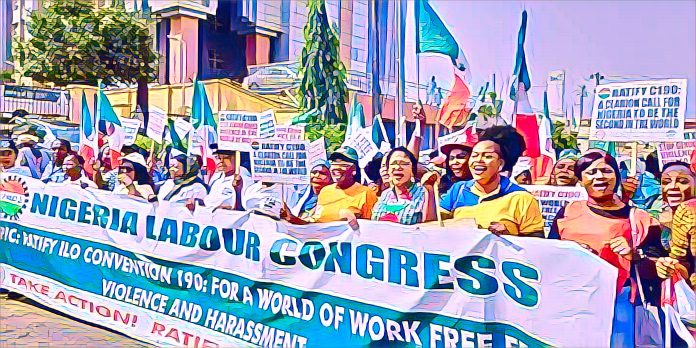The Campaign for Equal Rights and Opportunities for all Nigerians (CERON) is urging the federal government to take immediate steps to prevent a looming strike by organized labor unions. The group warns that a work stoppage would exacerbate the country’s economic hardship and potentially lead to social unrest.
CERON Secretary Francis Odiir issued a statement this weekend highlighting the dire economic situation facing many Nigerians. “Nigerians are hungry and angry,” Odiir said, pointing to the economic crisis that has gripped the nation since the end of fuel subsidies in May 2023. “Anything that could worsen the situation should be avoided.”
Odiir criticized the government’s handling of negotiations with labor unions regarding a new minimum wage. He argued that the government’s proposals seem insensitive to the suffering of ordinary Nigerians. “The government negotiating team did not show that they understood the impact of their economic policies on the people,” Odiir said.
The CERON secretary emphasized the urgency of finding a solution to avert the strike. “The government must do everything possible to prevent this strike,” Odiir urged. “A strike would only worsen the suffering of Nigerians and could lead to unrest.”
Calls for Renewed Negotiations
CERON’s statement comes amid heightened tensions between the government and labor unions. Negotiations over a new minimum wage have reached an impasse, raising the possibility of a nationwide strike. The last major strike action in Nigeria, in 2022, resulted in significant economic disruption, causing factories to idle and essential services to be hampered.
Analysts warn that a repeat of such disruption could further impede Nigeria’s economic recovery. The country continues to grapple with the effects of the COVID-19 pandemic, which exacerbated existing economic inequalities. The end of fuel subsidies last year also contributed to a rise in inflation and a decline in purchasing power for many Nigerians.
Labor Unions Flex Muscles
Nigeria’s labor unions, representing millions of workers across various sectors, have expressed their frustration with the slow pace of negotiations. The unions are demanding a significant increase in the minimum wage, arguing that the current rate is insufficient to meet basic needs in light of rising inflation.
The government, on the other hand, has expressed concerns about the financial implications of a substantial minimum wage hike. Officials argue that a large increase could strain government budgets and discourage investment.
Both sides face pressure to reach a compromise. Nigerians are yearning for economic relief, and a prolonged strike would only deepen the hardship. Businesses are also eager for stability to facilitate investment and growth.
CERON’s call for renewed negotiations underscores the importance of finding common ground. The group urges both the government and labor unions to prioritize the well-being of Nigerians and work towards a solution that addresses the economic challenges without resorting to disruptive industrial action.
Source: Vanguard



